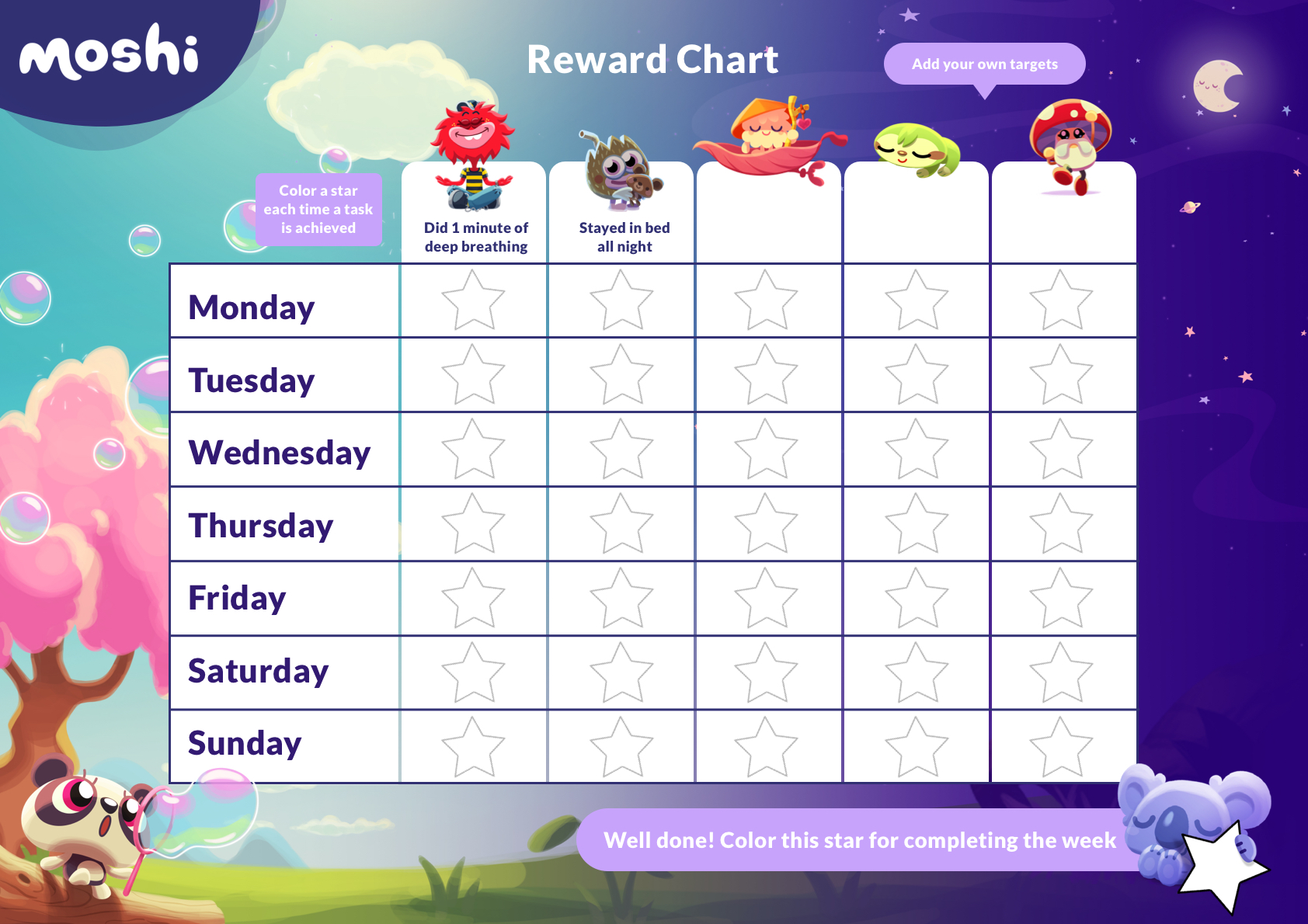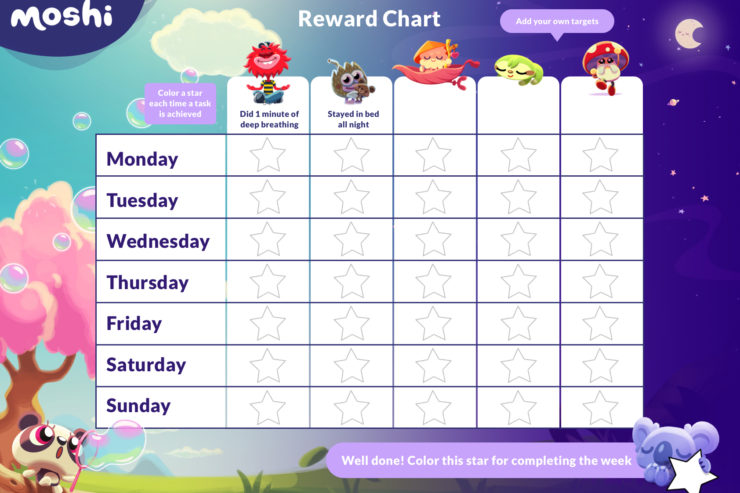
How to Make a Reward Chart for Kids
Wouldn’t it make parenting easier if kids just did what we asked the first time? Alas, that’s not how it works. The good news is that reward charts really work to motivate kids and encourage them to modify behaviors for healthy, helpful outcomes. Also called a behavior chart, reward charts clearly show desired chores and tasks and measure kids’ accomplishments — often using stars or stickers — so they have a visual representation of their progress each day. Kids respond to the immediate positive feedback and feel motivated to keep earning it — often with a prize for consistency in mind.
More good news for parents: Neither the prize nor the chart need be fussy or expensive. Here’s how to make an effective reward chart for kids — plus a free, printable chart to start from.
How to make a reward chart for kids
First, identify the behavior or behaviors that you want to include on your chart. Whatever tasks you choose, try not to overwhelm or discourage kids by picking too many; just focus on a few top-priority activities at a time so they can really focus. Make sure you pick tasks with outcomes that are clear and measurable. For instance, “be polite” is vague and subjective, whereas “make my bed” is defined and measurable.
Further, frame your behavior chart in a positive way to encourage kids: Think “I will put toys away in the bin,” rather than using a negative equivalent like, “I won’t leave my room a mess.” Communicate to your child that this chart is not about punishment; it’s about rewards for good behavior.
What to put on a reward chart for kids
What you put on your chart will vary with factors including kids’ age: Older kids’ charts might include school work and chores, whereas toddler charts might include tasks like using the potty. When determining what to put on your chart, consider that kids of all ages benefit from behaviors that promote adequate rest, good hygiene, and mental and physical health. A healthy daytime routine leads to better sleep at night, which in turn helps kids feel focused and happy the next day, and gives their immune systems a boost.
So your chart might include one minute of deep breathing each day, an achievable daily practice that can be done in any quiet space, and at any time of day. Moshi offers meditations made just for kids that can help establish this consistent daily habit with a multitude of benefits. Even a single minute can ease feelings of anxiety, lower stress levels, relax muscles, and increase energy levels. Plus, this type of healthy daytime routine helps promote good sleep at night.
To that end, rewarding kids for staying in bed through the night is another way to help support their healthy rhythms, brain development, focus, and happiness. Rather than being merely an isolated activity at night, kids’ sleep clearly connects to their daytime outcomes — and on and on in this cycle.
How to reward kids for behavior modifications
Think about how your child will best respond to seeing visual responses to their behaviors. While younger kids might want to see that star multiple times a day (for instance “I brushed my teeth in the morning,” “I brushed my teeth before bed”), older kids may have the patience and understanding to appreciate rewards at the end of a day or even at the end of a week.
Now determine how many stars or stickers your child will need to earn in order to get a reward. The trick is, this reward must be something your kid really wants in order for it to be an effective motivational tool. So do consider involving kids in the planning. Maybe it’s a coveted doll or toy. But the prize doesn’t have to be expensive — or even cost anything at all. It might be a chance for extended screen time, expanded playtime, or an adjusted bedtime. Whatever motivates your child individually makes an effective prize in combination with the goals you choose for your family’s customized chart.
For more ways to help kids establish healthy behaviors day and night, try these seven calming techniques for kids, and visit our guide to sleep meditation for kids.
